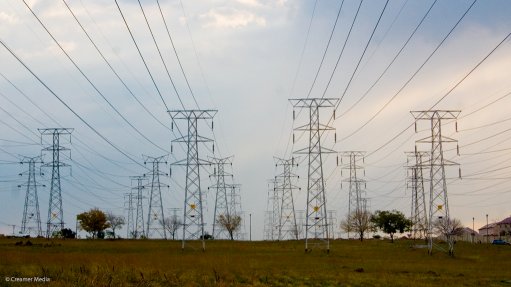
The National Treasury says the just energy transition could help South Africa to achieve energy security and climate resilience
Photo by: Creamer Media
The National Treasury has released details of what it describes as “highly concessional” loans with a combined value of €600-million, which are the first to be advanced under the $8.5-billion Just Energy Transition Partnership that South Africa entered into with several developed countries in 2021.
The €300-million apiece loans were concluded this week with France’s Agence Française de Développement (AFD) and Germany’s Kreditanstalt für Wiederaufbau (KFW) with the proceeds flowing directly to the National Treasury.
In a statement the National Treasury reported that both loans had a 20-year maturity, including five-year grace periods.
The AFD loan carried an interest rate of 3.6%, equivalent to a six-month Euribor plus 129 basis points, while the interest rate on the KfW loan was 3%, equivalent to a six-month Euribor plus 129 basis points.
“The estimated cost for the government of South Africa to raise an equivalent loan today in the market would be around 8.9%.
“This estimate is based on a fair value estimation of South Africa’s foreign currency bonds relative to the risk-free rate, secondary market activity and historical issue spreads,” the National Treasury said in a statement.
It also reported that both loans were sovereign loans that take the form of non-earmarked budget financing that is transferred directly into the National Revenue Fund of South Africa, adding that the the loans were already reflected in South Africa’s gross borrowing requirement and well within South Africa’s risk benchmark of foreign debt as percentage of total debt.
“These loans are in support of the policy and institutional reforms undertaken by the government of South Africa in support of its just energy transition.
“The loans are highly concessional as their terms are substantially more generous than what the government of South Africa would be able to raise in capital markets.”
The National Treasury added that replacing market lending with much cheaper concessional loans, allowed South Africa to reduce its cost of funding and overall debt burden, which was advantageous given the high interest rate environment and in a context where South Africa had a high debt stock.
“By lowering debt service costs, the government of South Africa creates more fiscal space for critical social and other priorities.”
The National Treasury added that the just energy transition could attract investment, create new industries and jobs, and help South Africa to achieve energy security and climate resilience.
“South Africa requires more support for its just energy transition given the large scale of the required transition in the context of the current socioeconomic challenges and will therefore continue discussions with various multilateral lenders in pursuit of this objective.”
The recently released Just Energy Transition Investment Plan, or JET-IP, points to an investment requirement of R1.5-trillion over the coming five years to support a shift from coal to renewables in the electricity sector, as well as to facilitate electric vehicle manufacturing and green hydrogen production.